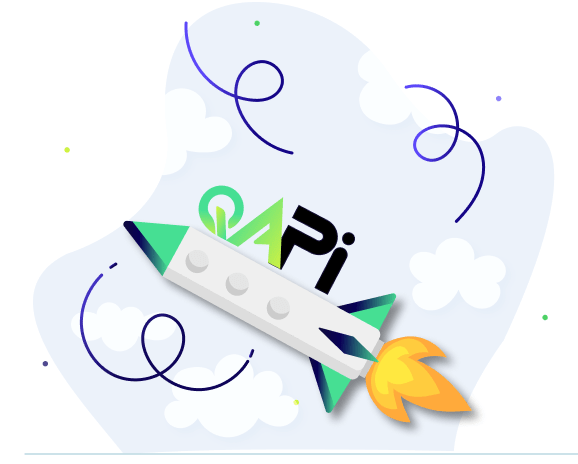Feature Friday 2023 Wrap-Up: Qyrus’s Cutting-Edge Testing Features Revealed!

Greetings, testing enthusiasts! In this special edition of Feature Friday, 2023 Wrap-Up, we’re diving into Qyrus’s latest testing features that are set to redefine the future of test automation. Join Tim and Adhiraj as they unravel core testing features of Qyrus rolled out throughout the 2023 year, showcasing the integration with GitHub, TestRail, XRay, Teams/Slack, CLI Commands, and introducing AI-enhanced tools like Rover, Qyrus Bot, Qyrus-GPT Plugin, API Discovery Tool, and NOVA. We’ll explore how these innovations align with the latest software quality assurance trends, bringing you the cutting-edge in test automation.
New Integrations
Github
GitHub Integration on Qyrus is one of the testing features that aims at seamlessly merging version control into Qyrus Mobility. It’s targeted towards users well-acquainted with GitHub, allowing them to push and pull scripts effortlessly, enhancing control and organization. Read more about this integration here.
TestRail
TestRail is a test case management software that can now get data from Qyrus test reports. Once a Qyrus test report is finished, it is created or updated in the TestRail test case. This integration is a game-changer for TestRail users. Read more about this integration here.
XRay
The Xray integration is an out-of-the-box integration that provides a link between your Xray issues and your Qyrus test scripts. Upon execution of these test scripts, the results are then populated straight to Xray to view execution results and updates from a single platform. Read more about this integration here.
Teams / Slack
Email notifications are already a thing on Qyrus, but we all know how bloated our inboxes can get. Getting notifications to your Slack or Teams channels is much more convenient as a whole. That way, entire teams or multiple stakeholders can be notified instantly about test results. And lastly, if someone has those messaging apps on their mobile devices, they’ll also get these notifications on the fly. Read more about this integration here.
CLI Commands
CLI commands allow users to interact with, inspect, or execute automated test scripts without visiting the Qyrus UI. With a range of pipeline integrations out of the box and webhooks for required custom integration, these packages allow a range of functionality without ever leaving the pipeline enabling Qyrus to execute in the background. Our CLI commands package is constantly being updated to add more functionality. Qyrus now has the capability to trigger executions across API tests without having to access the UI. Read more about our CLI commands here and check out our recent updates.
New AI-Enhanced Tools and Features
Rover
Rover AI is another one of our innovative ideas for automation testing that’s come to life. It is a tool that explores your mobile application and provides an activity map at the end of all possible user journeys that can take place on the application. Given that activity map, users can then build tests off of it. Simply clicking each node on the map – or each screen – the user can build out a test script for their mobile applications at lightning speeds. Read more about Rover AI, one of our incredible testing features, here.
Qyrus Bot
Qyrus Bot is an advanced chatbot that simplifies the entire testing process by offering a range of testing features that help users create, run, schedule, and manage tests with ease. With Qyrus Bot, users can create tests using natural language, without the need for technical expertise. Read more about how Qyrus Bot works here.
Qyrus-GPT Plugin
Qyrus has made its first ChatGPT plugin that works for testing. The plugin can build, create, and execute test scenarios by simply providing a URL to your web application. It helps the user to quickly build tests by analyzing the web application’s structure and behavior. It then can do things like suggest new scenarios for the user to build upon. Then, it can run all of those with the Qyrus test engine. Read more about Qyrus’ GPT plugin here.
API Discovery Tool
The API Discovery Recorder is a generative, AI-powered extension that tracks APIs that can be critical to the functionality of your web application. It helps the user quickly build API tests and generate assertions by simply browsing the web application locally on your machine. Read more about how the API Discovery Tool works here.
Nova
NOVA stands at the forefront of test automation innovation. A few of its capabilities are reading JIRA tickets, JIRA integration, and analyzing the requirements mentioned in the ticket. It can then automatically generate functional test scenarios from what it has analyzed. This helps to ensure that the delivered functionality of the application matches expectations and requirements. Oh, and if you don’t know how to write functional test scenarios, NOVA is there to lend a helping hand! Read more about our AI-powered NOVA tool here.
Overall Improvements to the Platform
Web / Mobility API Calling
Well, for starters, the idea behind this is to enable testers to build out more complex and comprehensive test scripts to help increase test coverage. Basically, a user is able to configure an API call to be made during the test script execution and then use that response data in the next part of the test. Read more about how this works here.
Step Functions
A user can reuse existing steps from a previous test script in a new test script. They don’t need to recreate the same steps in their script and can directly use what they already created. It allows users to maintain the test scripts easily. If a user makes an edit in one location, all locations using these steps will be updated. Especially for big test scripts, maintenance times can be exponentially reduced with this as one of Qyrus’ many testing features. Learn more about step functions here.
Salesforce Web Recorder Updates
Qyrus’ Salesforce Web Recorder in Web Testing has received exciting updates that we’re thrilled to share with you. These enhancements allow users to efficiently record and automate test scenarios within the Salesforce platform with more ease. Recording test scenarios becomes a breeze, eliminating the need for manual and error-prone processes. We’ll discuss how these updates benefit testers, developers, and organizations as a whole. Read more about how our web recorder handles Salesforce testing here.
Quick Imports
The quick imports feature enables users to fill out an Excel or JSON file, and as long as it is in the proper format the files can be imported into Qyrus and automatically built into executable test scripts. This feature truly simplifies test building and gives users another, streamlined test-building option. Whether it is making test building accessible to personas across the QA cycle or allowing targeted testers to build, save, or maintain scripts while offline or in transit, using a local environment, or having a strong familiarity with JSON or Excel. Read more on this topic here!
Updates to Test Building on Mobility
There has been a range of additions to mobile test building that make the process even simpler and more efficient. As you know, Qyrus is built on action types and therefore new ones are constantly being added to ensure steadfast and efficient testing. One of the most recently impactful is tap by Relative Coordinates. This testing feature assists in tapping on elements that cannot be located by normal means. There is a range of reasons elements can be difficult to locate and when the desired elements cannot be found with inspect mode, tapping by Relative Coordinates fixes these problems by taking a user-defined percentage of the element to locate it on the screen. In essence, this allows users to use any unique part of the element to locate it. Read more on how Qyrus has updated its test building on Mobility here!
Updates to API Process Test Building
The new way to build API Process tests is out! It offers a new perspective on chaining or stitching together the APIs to make the process test itself. Previously, we would chain the APIs together and go to a new screen to configure the connections, but now it’s all seamlessly built together on the same page. Read more about how Qyrus has updated its test building on API Process testing here!
And there you have it, the grand finale of the 2023 Feature Friday year! Qyrus has not just introduced testing features; it’s unleashed a testing revolution. From seamless integrations to AI-powered tools, Qyrus is setting the stage for the future of test automation. These innovations aren’t just about today; they’re about staying ahead of software quality assurance trends. Get ready to elevate your testing game with Qyrus!






